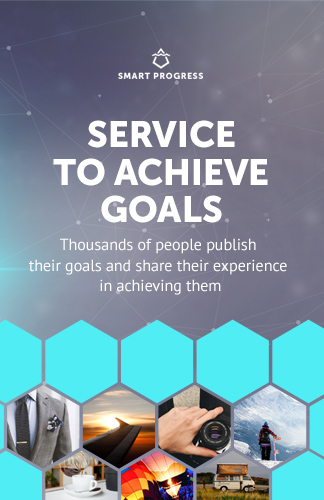
When I was in the 8th grade, I lost interest in my classes, and began shirking school. But I didn’t hang around on the street or tarry at home, as you might think. For six months, every morning I left the house, pretending I was going to school, but in fact, I went to the city library.
Quite an unusual choice for someone who lost interest in learning.
I don’t know what was wrong with me, but one day, I got so fed up with the educational process in the form of cramming standard textbooks that I decided I’d had enough.
Now I’m 30, and I can say I have not regretted a single second about that decision, despite its painful impact on my “education”. Sitting in the library, I was able to study books on History, Physics, Geometry, Chemistry in any order and in any quantity.
Why did I have to “get this for that”, if I was still doing the same things I had been forced to do in school?
Scientific Pedagogy
About two hundred years ago, the German philosopher, doctor of Science and the founder of the scientific pedagogy Johann Friedrich Herbart formulated the goal of general education: to whet an appetite for knowledge.
I must say that today, when I look at this postulate from the 21st century, I admire the independence of the mind, that had formulated it. To help you understand why: modern pedagogy believes that the aim of education is to give a man the knowledge and skills necessary for work and make him ready for working.

The difference between these two approaches is not just huge, it’s fundamental. While Herbart was caring for the self-fulfillment and success of every student, modern pedagogy cares for the state, or, if you will, the “society”.
However, this model is doomed to fail, because the “modern approach” doesn’t take into account the student’s interests. Why take them into account? After all, not everything in the world is interesting, there is a lot of uninteresting, but we still need to know and be able to do it.
Interest
To get an idea of this, we have to go a little further into the subject, and answer the question, “What is Interest?”
For some, this question may sound absurd, because there are things that we never reflect on, they seem self-evident. It’s like trying to answer the question “What is Desire?”
However, if a person wants to be successful and fulfilled, to answer this question is a necessity, because it’s clear even by intuition, that interest is something fundamental, therefore, it would be a mistake not to gain insight into how it works.
Cognitive sciences define interest as the main driver of human motivation. We knew this before, there’s nothing new. But what you may not have known is: interest is divided into situational and individual or, as it is sometimes called, “steady”.
The first type, situational, arises spontaneously, under the influence of transient external factors, whereof it is obvious, that it disappears as soon as the conditions change.
Of course, this is directly linked to memory, and memory is directly related to intellect, but in this article we’ll not delve into these issues. Suffice to say that the information, the value of which is caused by external factors, is not stored in the memory long.
The second type, individual, is more stable and comes from inner motives, it’s the internal interest that gives rise to this “motivation,” which has been so fashionable to speak about the last few years. Hence, by the way, it is possible to conclude about the benefits of “motivators”.
It is believed that a person experiencing “personal interest”, is inclined to be busy with the object of interest for the sake of the process and introduction to the subject, and not for solving hypothetical problems, as in the first case.
Of course, I’m not saying that the first type of interest is “bad” and the other is “good”. Solid self-collected people often criticize those who “spread too thin”. I also have such friends, whose interests alternate with an amazing speed.

If such situational interest is combined with the strong internal interest, a person has a chance to grow into the «T-Shaped man». Gabe Newell believes that future belongs to these people. Of course, provided that the situational interest has “lasted” long enough for a man to learn at least something in this area.
But still, why is the modern model of education so ineffective?
Research in the field of interest
For the three hundred years of research, we have received a sufficient number of illustrations that without a strong steady internal interest, the learning process is not effective.
In 1990, Professor Ulrich Schiefele conducted such a research, in order to identify the difference in the depth of text perception by students with different levels of personal interest in the subject.
The students were asked to read a text and answer the questions on the content. As control parameters, a prior familiarity with the subject and the level of intelligence of the respondents were used.
Four types of studies were conducted, different in the kind of test items: open-ended questions, a free retelling or tests on recognition.
The results of the first type (the open-ended questions) revealed a positive correlation between the level of testees’ interest and quality of their responses to the questions. However, it was observed only in the case of complex questions that required deep understanding, comparison and analysis of information. Whereas in response to simple questions, that required recalling isolated parts, the correlation was insignificant.
Thus, we can conclude that interest affects the way of processing, assimilation, analysis and comparison of the information and to a lesser extent – memorizing of the separate parts.
In the second type of research a text was used, which contained a large number of incomplete or incorrect statements.
The results revealed a remarkable correlation between the interest and the total number of sentences and main ideas. However, in the course of a detailed analysis, it turned out that this was true only for complete sentences, new information and truthful statements. While the interest had virtually no effect on memorizing the incorrect statements and incomplete sentences.
In addition, the interest greatly influenced the sequence and structural properties of the memory – the information obtained had not just been learned, but it had embedded in the knowledge system of the subjects. Perhaps, this can explain the fact that memorability of incorrect and incomplete statements had not increased – they had simply no place in the system of knowledge.
Thus, based only on these two types of research, it can be concluded that the level of interest not only extensively affects the quality of memorizing, but also activates crucially different processes – analysis and information processing.
It will be reasonable to assume that it’s the involvement of these processes that turns information into knowledge.
It is interesting that similar results were obtained by the researchers Carl A. Benver and Edward L. Deci in 1984, as well as Wendy S. Grolnick and Richard M. Ryan in 1987.
What does it all mean?
I would like you to make your own conclusions, but I must obey the law of the genre.
The education system in the form that exists in this country is not effective. And I’m not talking about the political situation, I’m talking about the fundamental orientation of education as a system.
What was evident three hundred years ago (namely, that without interest one shouldn’t expect any quality of knowledge), today sounds like a revelation. However, let’s look around and see how many obstacles are hindering in the way of obtaining human knowledge.
When I was in the 8th year, the Internet, fortunately, didn’t exist, so nothing disturbed my interest in science (except for school).
We are used to considering interest as something optional, just like a whim. Because, “besides the word “want” there’s the word “should”. One can argue to what extent and what it’s caused by – the fact that profession must be relevant, that “one always wants to eat,” that “one can have a marriage (work) of convenience, and love will be added later”.
Personally, I don’t believe in all this, I reckon that people make a big mistake, choosing their occupation, based on the market demand, parental expectations, or “relevance.” These are all the external factors, conditioning.
Think, what would happen to the world if there were no people, abnormal to the extent to dedicate their life to the study of spores reproduction method? Or if Tim Berners-Lee decided that science was not a very profitable business, and went to trade on the stock exchange?
[R]evolution
I don’t want to perpetrate revolutions, especially since it’s been said a thousand times before me. But I think, we often underestimate the fundamental concepts, right because they are in plain sight.
Interest is one of those concepts. Of course, you can do something without interest, I myself have just cited the research results confirming this. To memorize a dozen terms and a hundred combinations, for example, to work on the assembly line, no interest is necessary.
![[R]evolution](https://smarttalks.me/wp-content/uploads/2016/10/a608303dd4e94e9a9362191d6a057259.jpg)
The problem is, the very description obviously proves that this activity falls under full algorithmization, which means that sooner or later, it will be delegated to machines. However, it will happen later rather than sooner, as long as we live in the existing education system, which was developed to fill workplaces.
The paradox is, that now the cart has got before the horse, and we need to create jobs for the existing education system, because if we replace the tram-drivers by autopilots and the assemblers – by robots, who will feed all these people?
What Is To Be Done?
I think, we should start with ceasing to treat the interest as a whim. Herbart believed that interest could be awakened in every person. Of course, we’d like to argue here, as it sounds idealistic. But just imagine what the world would look like if everyone minded his own business.
Of course, the question “How can I find my own business?” still remains. For many, it’s not a question – these lucky people from their childhood know what they want to do, and even pragmatic parents can hardly talk them out of it, which causes a lot of conflicts, misunderstanding, resentment, dashed hopes and expectations. Thanks to the old way of thinking as well, by the way.
For others, the answer is simple – you need to try everything. Of course, it would have been ideal if your parents had raised you in accordance with the intensive, not extensive, development model, and if school didn’t distinguish children by quantitative and age characteristics, but by the more meaningful ones.
Well, all this is the subjunctive mood, and what you can do now is to go and do what you have always wanted, but never had time or courage, because “this was not what you can make money from.”
Don’t wait for “the right moment”, or another Monday to “start a new life.” You should find the strength (while you still have some), and remember what you’ve always dreamed about.
You wanted to understand the chemistry, but no one could explain to you the meaning of all those equations? You want to sing, but you were explained that you had no ear for music? You want to draw, but you are afraid that no one needs it?
Interest is a unique natural filter, which makes us do something in what we can achieve quality results. But, for some reason, we decided that it was nothing but a whim, and we are to do not the things that are interesting, but what is profitable.
Imagine for a moment, if there were no people in the world who resist such a setting, and are committed to what they are interested in, no matter how prestigious and profitable it is, spending all their time and energy on it.
If there were no such freaks who, having forgotten about sleep and food and their own family, fiddle with mold fungi? Who would discover penicillin? How would we get to know about neuroplasticity, if not for the strange people digging in the clinical records of people with mental disorders? If there were no people who like to cure teeth? It’s hard to imagine that someone may like it, but I know a dentist, whose appointment schedule is set up for the next six months, because he knows everything about dentistry. And his parents dreamed he would become a public official. If people were guided solely by the reasons of income, who would write books on criminology? Who would teach future investigators?
SmartProgress is a starting point for the people who want to do what they are interested in, no matter what. We help people find their true calling, or just become better with each new project, each new achieved goal. Let it be less ambitious, albeit at first it seems a small victory, or even a defeat. But these victories and defeats help us better understand who we are, what we want, what we need, teach us to distinguish one from the other.
There are times when people set a goal, but give up soon, knowing they are not interested in the process, they simply want results. They like to imagine it, but can’t find enough interest to be engaged in the process methodically. Do you feel how disapproval against them arises inside you?
But how else can we understand what we need? It is believed that you should overcome yourself, to find strength, push … But listen to any enthusiasts of their business – they don’t force themselves to do their work! They force themselves not to give up – that’s true. To ignore failures, defeats and “advice” of friends to find a normal job, to settle down, to relax – yes, as much as you like. But to force yourself to do things, you can’t live without? That’s doubtful.
There’s much to learn from these people, and, together with the participants of SmartProgress, we learn, make mistakes, discover our strengths and weaknesses, gradually try to get rid of the imposed, imaginary ambitions and focus on our true goals, capabilities and mission.
Join now. Let’s grow together.

 Русский
Русский










